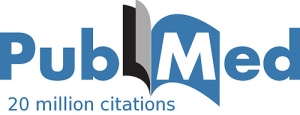
The New York Times Bits blog (The Lessons Thus Far From the Transition to Digital Patient Records) concludes its post on the ups and downs of health information technology by asserting the following:
In health information technology, there are no clinical trials or tests with randomized controls, as there are for drugs, for example. True, digital data does not go into the body, but it can increasingly guide what does.
Actually, high-quality studies of medical decision support tools are quite common. For example, here’s the abstract of a recent study (Evidence-Based Decision Support for Neurological Diagnosis Reduces Errors and Unnecessary Workup) published in the Journal of Child Neurology:
Using vignettes of real cases and the SimulConsult diagnostic decision support software, neurologists listed a differential diagnosis and workup before and after using the decision support. Using the software, there was a significant reduction in error, up to 75% for diagnosis and 56% for workup. This error reduction occurred despite the baseline being one in which testers were allowed to use narrative resources and Web searching. A key factor that improved performance was taking enough time (>2 minutes) to enter clinical findings into the software accurately. Under these conditions and for instances in which the diagnoses changed based on using the software, diagnostic accuracy improved in 96% of instances. There was a 6% decrease in the number of workup items accompanied by a 34% increase in relevance. The authors conclude that decision support for a neurological diagnosis can reduce errors and save on unnecessary testing.
The government and healthcare providers are investing a fortune in health information technology. A lot of time, effort and cash has been spent on installing EHRs and getting the initial data into them. But the real clinical and financial value will come from using the information in electronic health records for better communication and clinical decision making.
The Times does readers a disservice by asserting that high quality clinical trials aren’t and can’t be done.







